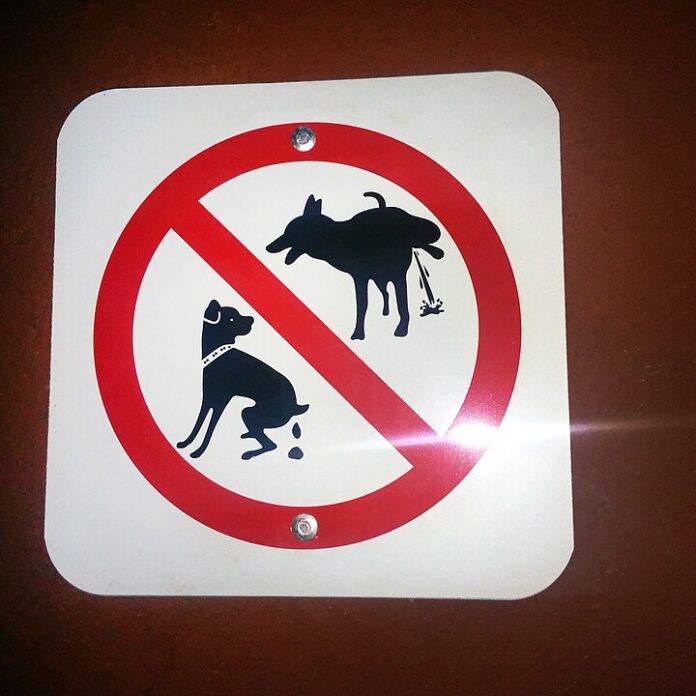In recent years, the issue of dog fouling has become a significant concern in many communities across the UK. Not only is it unsightly, but it also poses health risks to both humans and other animals. To tackle this persistent problem, local councils have implemented various fines and new laws to ensure responsible pet ownership. The environmental team at Federal Management reveals what you need to know about dog poo fines and the latest regulations in 2024.
The Importance of Picking Up After Your Dog
Dog faeces can contain harmful bacteria and parasites, such as Toxocara canis, which can lead to serious health issues like toxocariasis in humans. This is particularly dangerous for children, who are more likely to come into contact with contaminated soil while playing. Moreover, dog mess in public places such as parks, pavements, and beaches not only creates an unpleasant environment but also reflects poorly on the community.
Current Fines for Dog Fouling
Local authorities have the power to issue fines to dog owners who fail to pick up after their pets. The typical penalty for dog fouling is a fixed penalty notice (FPN) which can range from £50 to £150, depending on the council’s policy. If the fine is not paid, the offender can be taken to court, where they may face a fine of up to £1,000.
New Laws and Increased Fines in 2024
Recognising that the existing measures were not sufficient to deter all offenders, several new laws and increased fines have been introduced in 2024 to combat dog fouling more effectively.
Increased Fixed Penalty Notices
To provide a stronger deterrent, many councils have raised the fixed penalty notice for dog fouling. The new standard FPN is now between £100 and £200. In some areas, repeat offenders may face even higher fines.
On-the-Spot Fines for Repeat Offenders
In response to frequent violations, local councils now have the authority to issue on-the-spot fines to repeat offenders without prior warning. This aims to create a zero-tolerance approach to dog fouling.
Mandatory Dog Waste Bags
In some regions, it is now mandatory for dog owners to carry dog waste bags when they are out with their pets. Failure to do so can result in a fine. This law ensures that dog owners are always prepared to clean up after their pets. Several regions have implemented laws requiring dog owners to carry dog waste bags when out with their pets. Notable examples include:
Kent: Dog owners must carry at least two waste bags while walking their dogs. Failure to comply can result in an immediate fine of £80, which can escalate to £1000 for repeat offences.
Gloucester: Although not explicitly stated in terms of carrying bags, Gloucester has strict enforcement of cleaning up after dogs, with significant fines for non-compliance. It has been identified as having a high incidence of dog waste issues.
Leeds: Leeds has rigorous enforcement, with a significant proportion of pet owners being fined for not cleaning up after their dogs. This enforcement implicitly requires owners to carry waste bags to avoid penalties..
These laws aim to maintain public cleanliness and hygiene, promoting responsible pet ownership and reducing health hazards associated with dog waste in public spaces.
Public Space Protection Orders (PSPOs)
Many councils have implemented Public Space Protection Orders (PSPOs) to create specific areas where dog fouling regulations are strictly enforced. These areas often include parks, playgrounds, and popular walking paths. Breaching a PSPO can lead to substantial fines and legal action.
Community Reporting Initiatives
To enhance community involvement, new initiatives encourage residents to report dog fouling incidents. Some councils have introduced dedicated hotlines and mobile apps that allow residents to report offenders anonymously. This data helps local authorities target problem areas more effectively.
Tips for Responsible Dog Ownership
Always Carry Waste Bags: Make it a habit to carry dog waste bags whenever you take your dog out. Keep a supply in your car, coat pockets, and near the door to ensure you’re never caught unprepared.
Dispose of Waste Properly: Use designated dog waste bins or general waste bins to dispose of your dog’s mess. Never leave waste bags on the ground or hanging from trees.
Be Aware of Local Rules: Stay informed about local regulations regarding dog fouling. Different areas may have specific rules and fines, especially if PSPOs are in place.
Lead by Example: Encourage other dog owners to pick up after their pets by setting a good example. Your actions can help create a cleaner, healthier community.
James O’Brennan from Federal Management says:
The increased fines and new laws introduced in 2024 reflect the UK’s commitment to tackling the issue of dog fouling. By adhering to these regulations and promoting responsible pet ownership, we can all contribute to a cleaner and safer environment for everyone. Remember, picking up after your dog is not just a legal obligation but a civic duty that shows respect for your neighbours and community.

| [donate]
| Help keep news FREE for our readersSupporting your local community newspaper/online news outlet is crucial now more than ever. If you believe in independent journalism,then consider making a valuable contribution by making a one-time or monthly donation. We operate in rural areas where providing unbiased news can be challenging. |




















Trouvez votre bonheur avec Inventonslemondedapres,le comparateur qui révèle les casinos en ligne aux offres exceptionnelles !